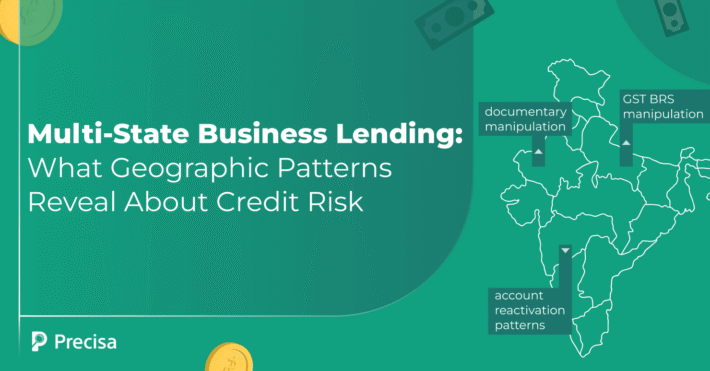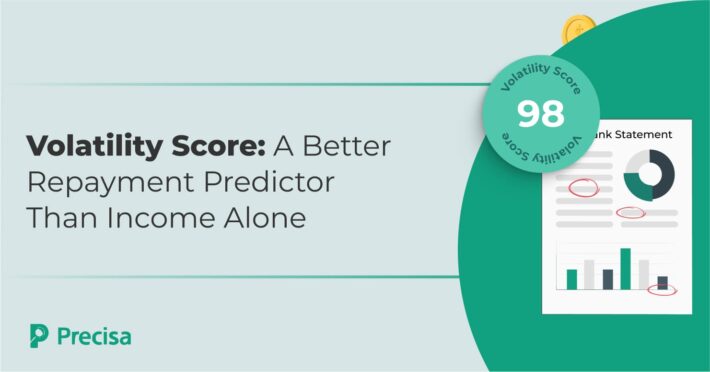How Lenders Can Help Combat Economic Offences: A Collaborative Approach

Economic offences in India bear little resemblance to its past avatar. Traditional theft and forgery have given way to sophisticated digital attacks, creating unprecedented challenges for lending institutions.
The RBI’s report puts this into perspective—banking frauds cost the sector ₹21,367 crores in the first half of the FY 2024-25, with digital platforms taking the hardest hit.
Behind these attacks lie well-orchestrated criminal networks that cross jurisdictional boundaries, exploiting technological vulnerabilities in lending systems. Their methods grow more refined by the day, pushing lending institutions, fintech firms and regulatory bodies to rethink their defensive strategies.
This analysis explores how economic offences have evolved in lending, why current safeguards often fall short, and how collaborative solutions might address them.
Understanding Economic Offences in Lending
Economic offences strike at the heart of lending institutions, bleeding them through calculated deception. Each successful attack, along with monetary loss, also erodes public trust in our banking system.
With digital lending on the rise, especially in untapped markets, the stakes keep climbing. The following are the common types of economic offence in lending:
1. Loan Fraud
Fraudsters forge statements to secure loans they never intend to repay. This includes falsification of income statements, bank documents, employment records and other credentials required for loan approval.
2. Identity Theft:
Contemporary identity theft combines stolen and fabricated data to create synthetic borrower profiles. These carefully constructed identities enable unauthorised credit access across multiple institutions.
3. Money Laundering
Networks of shell companies and intermediaries move illicit funds through legitimate lending channels. Complex transaction layers and strategic routing obscure money trails from detection systems.
4. Financial Misrepresentation in Economic Offences
Borrowers manipulate financial statements and business documentation to enhance their apparent creditworthiness. The deliberate misrepresentation enables access to larger credit facilities while evading standard assessments.
Key Challenges Lenders Face in Combating Economic Offences
Despite regulatory frameworks and internal risk assessment models, lenders face several hurdles in addressing economic offences. These challenges make it difficult to detect, prevent, and respond to financial crimes effectively:
1. Evolving Fraud Tactics in Economic Offences
Banking fraud has moved far beyond simple document forgery. The criminals deploy high-tech tools to create deceptive documentation that can bypass standard checks.
Bank fraud cases have jumped 27% YoY, highlighting the growing sophistication of these attacks.
2. Data Gaps in Financial Crime Detection
Traditional fraud detection systems struggle with fragmented data sources, and limited visibility into borrower histories creates blind spots in risk assessment. Further, manual processes cannot effectively handle the increasing volume and complexity of transactions.
Digital payments in India have grown significantly in recent years, with a CAGR of 89.3% in volume and 86.5% in value from 2018 to 2024.
3. Regulatory Compliance Complexities
Lenders must navigate an intricate web of regulatory requirements, from PMLA compliance to RBI’s digital lending guidelines. These mandates demand enhanced due diligence and real-time monitoring, creating operational challenges while balancing swift loan processing needs.
4. Borrower Credibility Verification
Assessing borrower credibility has become more challenging as financial profiles grow more complex. Traditional credit assessment methods often fall short in evaluating modern borrower profiles, particularly in cases involving non-traditional income sources or digital businesses.
5. Limited Inter-institutional Collaboration
The lack of standardised protocols for sharing fraud intelligence hampers prevention efforts. While some information-sharing networks exist, many institutions still operate in silos, limiting the financial sector’s collective ability to combat fraud.
A Collaborative Approach to Fighting Economic Offences
To effectively manage economic offences, lending institutions must work alongside regulators, law enforcement agencies, and technology providers to build a robust defence system.
Let’s see how a unified approach ensures better fraud detection, risk mitigation, and regulatory compliance:
1. Collaboration with Regulators
Close collaboration with regulatory bodies helps institutions stay ahead of compliance requirements while contributing to broader fraud prevention efforts.
Lenders must align their AML and KYC practices with RBI guidelines and FIU-IND regulations to ensure compliance and adopt industry best practices.
2. Fraud Intelligence Sharing
Structured data-sharing frameworks enable institutions to pool intelligence about emerging fraud patterns.
Recent RBI guidelines encourage participating in fraud intelligence networks, with early adopters reporting significant improvements in fraud detection capabilities. These initiatives help create a unified defence against organised financial crime.
3. Partnerships with Fintech Firms
Strategic collaborations with fintech companies provide lenders access to advanced fraud detection capabilities.
Such partnerships help institutions implement real-time monitoring systems, automated risk assessment, and pattern recognition algorithms, significantly improving fraud prevention capabilities.
Recent industry reports show that AI-driven detection tools can identify potential fraud patterns 70% faster than traditional methods.
4. Financial Literacy in Economic Offences
Structured awareness programs focusing on digital security risks and fraud issues create a crucial first line of defence.
Updates on emerging threats with practical strategies of protection create an opportunity to strengthen institutional security and protect customers’ financial interests.
The Role of Technology in Preventing Economic Offences
Modern lenders must leverage advanced financial crime prevention tools to mitigate risks associated with economic offences. Technology-driven solutions enable real-time fraud detection and compliance with evolving regulations:
1. AI-Powered Risk Assessment
AI-powered systems analyse vast amounts of data to detect fraud patterns in real time. Machine learning algorithms continuously improve their detection capabilities by learning from new fraud attempts and successful interventions.
These technologies enable predictive fraud prevention, identifying potential threats before they materialise.
2. Cloud Computing and Big Data Analytics
Banks now leverage cloud platforms to process vast transaction datasets, identifying subtle fraud patterns that human analysts might miss.
These scalable solutions enable rapid response to emerging threats while maintaining robust security protocols.
3. Automated Compliance Management
Modern compliance management systems automate regulatory reporting, KYC verification, and risk assessment processes.
It continuously monitors transactions against regulatory thresholds, automatically flags violations, and maintains comprehensive audit trails, reducing compliance overhead.
Key Takeaways
Economic offences present mounting challenges for India’s lending institutions, from rising fraud schemes to complex regulatory requirements. A proactive, collaborative approach powered by advanced technology has become essential for strengthening the financial sector’s defense mechanisms.
Precisa’s comprehensive suite empowers lenders with advanced tools to combat financial crimes effectively. Bank Statement Analysis provides deep insights into transaction patterns, identifying potential risks. AML Analysis automates fraud detection and compliance checks.
On the other hand, Credit Report Analysis enhances risk profiling by cross-verifying borrower financial history. Account Aggregator Integration offers a unified financial data view for better loan decision-making.
Want to strengthen your defence against economic offences? Contact us for a free trial today!




